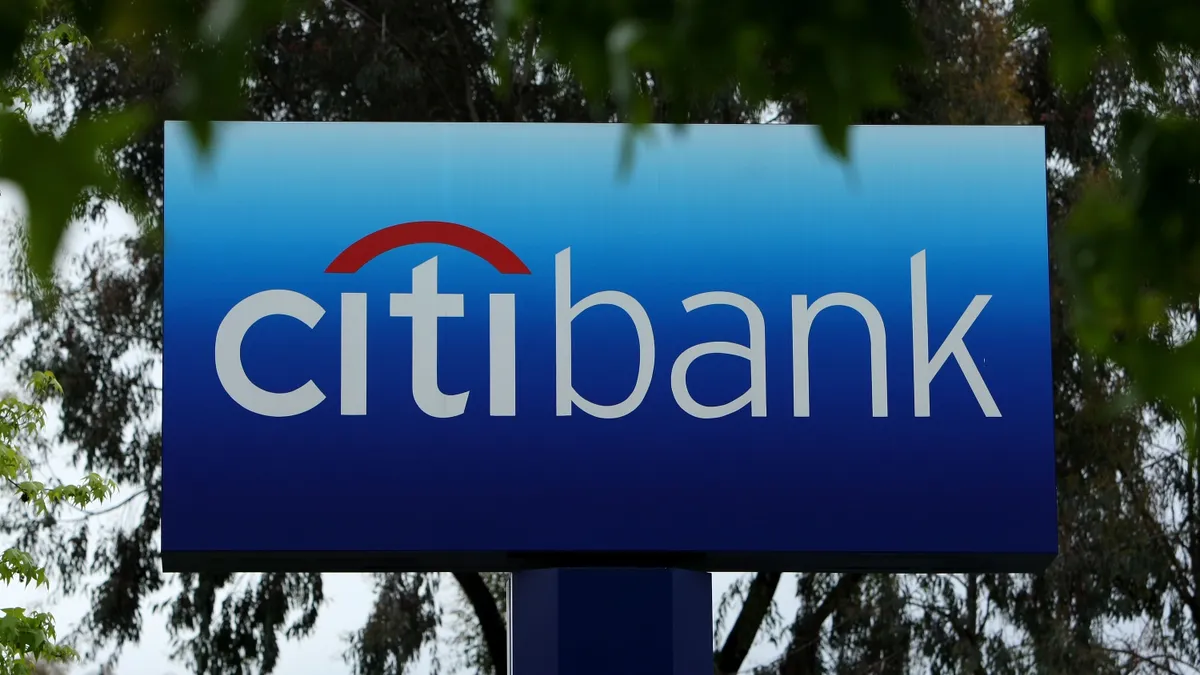Dive Brief:
- Axis Bank will buy Citi’s consumer-banking business in India for roughly $1.6 billion — a deal that’s expected to close in the first half of 2023, Citi said Wednesday in a press release.
- The transaction includes Citi’s credit-card business in the country, retail banking, wealth management and consumer loans, as well as a nonbanking entity, Citicorp Finance (India) Ltd., which handles asset-backed financing. Citi, however, will hold on to its institutional client business in India, where it serves more than 2,000 international corporations and another 300 domestic companies.
- About 3,600 Citi employees will transfer to Axis in the deal. Axis will also need to set aside around $461 million for loan provisions and other regulatory requirements, Reuters reported Wednesday.
Dive Insight:
India marks the ninth market from which Citi has solidified its retreat in the past 12 months. The bank laid out a strategy last April to exit from retail operations in 13 markets, concentrating instead on four hubs with higher returns: London, Singapore, Hong Kong and the United Arab Emirates.
Citi has found buyers in eight — and India's, so far, stands as the most lucrative deal. The bank is still looking to spin off its retail presence in China, Poland, Bahrain and Russia — although the latter may prove problematic given the sanctions Western nations have imposed on the country since its invasion of Ukraine last month.
Citi disclosed late last month it had roughly $9.8 billion in exposure to Russia — and risks losing "a little less than half of that" under a "severe stress scenario." However, Mike Mayo, an analyst with Wells Fargo, has estimated Citi's loss at $1.5 billion. The bank said March 14 that it would stop soliciting new business clients in Russia and help multinational corporations extricating themselves from business in the country.
Citi expects the India deal to allow it to release roughly $800 million in allocated tangible common equity. When it announced its 13-market exit strategy, it aimed for a total of $7 billion.
The Axis deal "represents an important milestone for our franchise," Peter Babej, Citi's Asia Pacific CEO, said in Wednesday's press release. "In line with our broader strategic repositioning, we will continue to support our institutional clients in this core market ... delivering the full power of our global network to enable their growth."
Axis, meanwhile, would grow into India's third-largest wealth management presence through the deal, CEO Amitabh Chaudhry told a press conference in Mumbai, according to Bloomberg.
Axis also expects the deal to add 7% to its deposit base, boost its loan book by 4%, and expand its credit card client pool by 31%, according to Reuters.
"A transaction of this nature comes in a lifetime, and the price makes sense," Chaudhry said. "This is perhaps one of the best consumer franchises in the country."
Axis had long been rumored as a front-runner for Citi's India footprint. Nonetheless, the assets saw "an extensive and competitive auction process," according to Citi. The months-long affair also saw bidding from Axis rival Kotak Mahindra Bank, Reuters reported.
"We are extremely pleased with this outcome," said Titi Cole, Citi's CEO for legacy franchises, a segment the bank created recently to help investors more easily track assets it aims to spin off. "We believe Axis will provide our employees an excellent environment to build their careers and will meet all the financial needs of our consumer clients."
Citi agreed in January to sell its Taiwan retail presence to DBS. Earlier that month, it announced it would sell its consumer-banking businesses in Indonesia, Malaysia, Thailand and Vietnam to United Overseas Bank. Citi struck a deal in December to sell its Philippine retail footprint to Union Bank of the Philippines, and spun off its Australian consumer-banking footprint to National Australia Bank in August.
Citi hasn't found buyers everywhere. The bank announced in November it would incur between $1.2 billion and $1.5 billion in charges to wind down its retail operations in South Korea.
In January, it added Mexico to the list of retail markets from which it plans to withdraw. That prospect has reportedly attracted attention from such suitors as Santander and Banorte.











